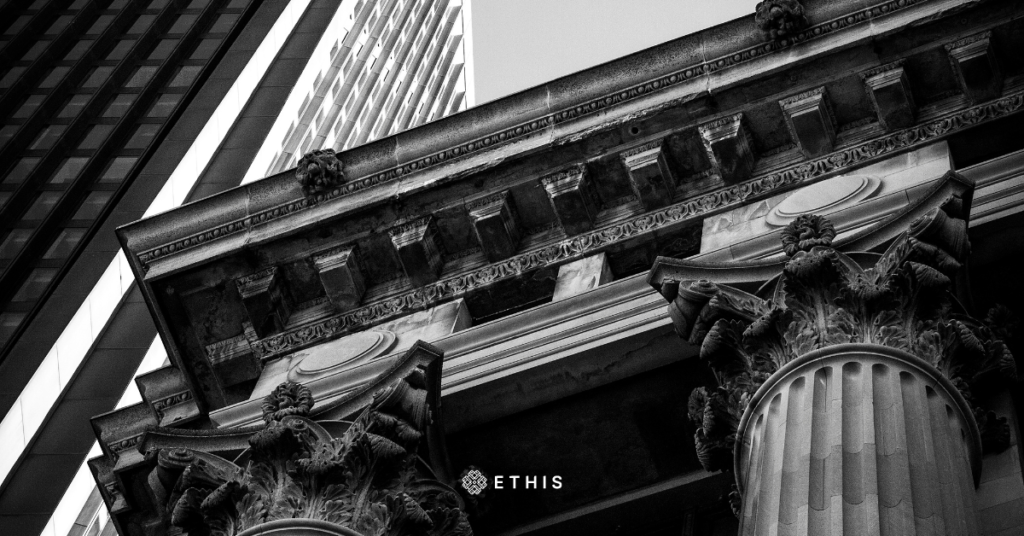
With the rise of startup culture, a new and exciting form of investing has gained precedence over the years. Venture Capital can be described as a form of private equity sourcing or a type of financing between startup companies and eager investors. In essence, VC is allocated to promising companies that are showing signs of extreme growth with intentions of expanding within or beyond markets.
By now you may have seen at least some of the notable brands and giant startups being granted millions in funding through VCs. The media is consistently hanging a spotlight over deals like this.
Now, Venture Capital Trusts have emerged prominently as a way for more investors to contribute and earn massive potential profits from such deals.
What exactly are VC Trusts all about, and more importantly to Muslim investors, is this a Halal means of making profits?
Related: Islamic Venture Capital via Crowdfunding: A New Approach
What is a Venture Capital Trust (VCT)?


There’s a form of investment vehicle called a venture capital trust (VCT). Created by the U.K. government in the 1990s to help local private businesses seek investment, VCTs are closed-ended, tax-efficient and allow individual investors access to venture capital investments via capital markets.
Publicly traded, VCTs provide capital to small and emerging private British businesses as long as the companies meet certain criteria in order to qualify for said capital. The capitals include, but are not limited to evergreen, limited life and AIM funds.
Between 2018-2019, investors poured in more than £700 million into VCTs, which is the second-best amount on record and the highest amount of upfront tax relief on record.
Related: 6 Crucial Components of the Islamic Financial System
Financial advisors say that they’re the go-to choice of high earners like doctors, lawyers, finance professionals and entrepreneurs who have sold their companies for profit.
Many funds have been performing very well in recent years, with the tax breaks on offer being the main attraction.
According to data from the Association of Investment Companies, the top 20 VCTs have at least quadrupled their investors’ money over the last ten years on a net asset value total return basis.
How Venture Capital Trusts (VCTs) work


A few venture capital schemes were introduced by the British government in 1995 to encourage growth in the private sector and thus generate investment from individual investors. These schemes include:
- The Enterprise Investment Scheme
- The Seed Enterprise Scheme
- Venture Capital Trust Scheme.
With venture capital trusts, retail investors can purchase shares that are traded on major exchanges like the LSE, allowing investors to help grow small, private, and promising businesses.
To be qualified as a VCT, the fund must be:
- Listed on a major exchange in the U.K.
- Companies that receive finance from VCTs must employ a maximum of 250 people.
- Companies under the VCT must have less than £15 million (more than RM82 million) in gross assets before the investment and £16 right after the investment.
VCTs are exempt from corporate taxes on capital gains, while also enjoying tax benefits such as 30% annual investment income tax relief of up to £200,000 or more than RM1.1 million (as long as they are kept for at least five years) and a tax exemption on VCT investment dividend income.



Related: How Worldview and Ethics Shape Islamic Economics and Finance
Halal/Shariah-compliant investments prioritise transparency


In simple terms, halal investment is about transparency. A halal investor must be aware of the product and service they invest in, the inner workings of the investment, and whether the investment meets the requirements of Sharia Law.
For example, investments in companies that deal with gambling, sex trades and pork products would be considered against halal investment. The concept of halal isn’t just about food.
Halal investment rules are aimed to ensure that the investment community is one that is ethical, fair, and just, which goes against the modern notion that the ultimate aim of investment is making money. In other words, profits will come eventually when one first invests in religion, family, life, intellect, and property. Do good first, and you shall be rewarded.
Many view halal investments as restricting and limiting, and thus non-profitable, and thus dismiss it. This is untrue. It simply asks that the focus be on ethical practices which leads to mutual benefits, and eventually, profit.
Halal investments are seen as non-risky, and thus why a lot of companies that focused on practising halal investments were able to withstand the economic collapse of 2008.
So, are VCTs Halal?


TLDR: They can be halal based on certain prerequisites.
A VCT can be halal, but the company that receives the investment has to be Sharia-compliant. Due diligence by the investor is important in ensuring that the company it invests in does not uphold practices that are unethical and is not deemed best for the people, community and society.
A point to note is that Venture Capitals generally come under Islamic finances’ Mudarabah Model.
Both profit and risks are equally shared by the investor and the company that receives the investment.
This is where the formation of an alternative concept called Islamic Venture Capital comes in.
For young Muslim entrepreneurs who refuse to accept venture capital (VC) firms’ recommended instruments such as convertible bonds and warrants, the present IVC model offers a promising solution.
On the other hand, it gives an alternative to the existing products such as “Musharaka,” “Mudharaba,” and “Wakalah” contracts for IVC enterprises.
Here’s how Islamic Venture Capital works:


-Both venture capital firms and enterprises will serve as partners under the musharakah contract, sharing profits according to a predetermined ratio and bearing losses according to capital commitment.
-Unlike a mudarabah contract, venture capital as a musharakah partner can participate actively in business operations and decision-making in this situation.
-The extra inputs by the venture capital business are justified by Islamic venture capital under the musharakah contract, as capital placed into the musharakah contract is not limited to cash and money, but also in kind and skills.
Related: New Developments Bode Well for Islamic Finance
However, there are a few issues with Islamic Venture Capital when operating independently from islamic crowdfunding framework.
This article by Amiratul Nadiah Hasan, Nur Diyana Najwa Mohd Affendi, and Aishath Muneeza of INCEIF goes into more depth about how the progress of IVC is slowed due to heavy reliance on conventional banking, and how crucial crowdfunding elements are to IVC.





Top Posts
Islamic P2P Crowdfunding Explained
How to Earn Halal Money? The Money Mindset
Halal Investments for Singapore Muslims? It’s time for a shake-up in the Islamic Investments scene.
Smart investment for making Halal money
3 Reasons Why Property Crowdfunding is the Smart Investment for You